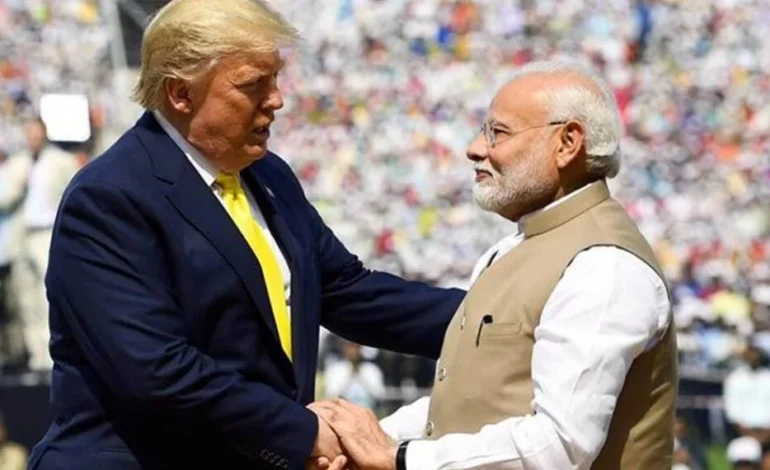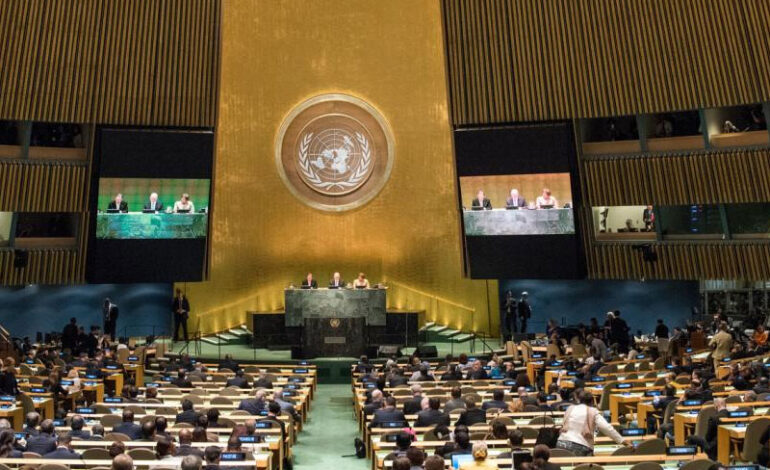
US President’s Ceasefire Push Triggers Outrage Among Modi Loyalists Amid India-Pakistan Tensions
At the heart of the uproar was Indian Foreign Secretary Vikram Misri, who became the target of a coordinated wave of online trolling and abuse after he publicly announced the cessation of hostilities with Pakistan. Misri, acting on behalf of India’s political leadership, had been briefing the nation on the escalating post-Pahalgam tensions and the eventual de-escalation.
But the ceasefire—and its perceived international orchestration—was not well-received in nationalist circles.
Ceasefire Interrupts Media Frenzy
Indian TV anchor Arnab Goswami, known for his aggressively nationalistic tone, was mid-broadcast, declaring Pakistan’s military defeat, when the news of the ceasefire broke. Simultaneously, anchors across India’s mainstream pro-Modi networks were pushing dramatic narratives of a “regime change” in Islamabad and alleged missile strikes on Karachi.
The sudden announcement not only disrupted their coverage but also exposed the growing disconnect between reality and televised rhetoric, leaving their audiences stunned and questioning the information vacuum in a media landscape where access to international news sources is increasingly restricted.
“Who authorised President Trump to intervene?” an enraged Goswami reportedly questioned, echoing the sentiments of many nationalist viewers who expected a continued show of Indian military dominance.
Diplomats Face the Wrath
While Prime Minister Modi avoided direct criticism, it was Foreign Secretary Vikram Misri who bore the brunt of nationalist outrage. Misri’s official social media account was bombarded with vulgar and personal attacks, many of them targeting his family—especially his daughter. The harassment became so severe that he was forced to lock his account, as reported by The Hindu.
In a rare show of solidarity, India’s top bureaucratic and law enforcement bodies spoke out in his defense.
- The Indian Administrative Service (IAS) Association condemned the attacks: “Unwarranted personal attacks on civil servants performing their duties with integrity are deeply regrettable.”
- The Indian Police Service (IPS) Association echoed the sentiment: “Such unwarranted assaults on civil servants committed to their duties are intolerable.”
Political Leaders Rally Behind Misri
Prominent political leaders also came forward to denounce the online abuse. Asaduddin Owaisi, Member of Parliament from Hyderabad, reminded the public that civil servants act under political directives:
“They shouldn’t be blamed for decisions taken by the Executive or any political leadership running Watan-e-Aziz (the beloved nation).”
Congress leaders Sachin Pilot and Gaurav Gogoi likewise defended Misri’s professionalism and urged the public to refrain from attacking those fulfilling their duties.
“It’s unacceptable to target our professional diplomats and civil servants,” Pilot said.
“Mr Misri did his duty impeccably,” Gogoi added.
Ceasefire Spurs Geopolitical Concerns
Beyond domestic political drama, the ceasefire raises wider strategic concerns for India. With President Trump and Chinese President Xi Jinping reportedly negotiating new trade agreements, analysts warn that any thaw in US-China relations—especially during a sensitive India-Pakistan flare-up—could weaken New Delhi’s diplomatic leverage.
Observers also note the silence along the Line of Control (LoC) is unusual, and could signal a longer pause in hostilities, at least for now. Jammu and Kashmir Chief Minister Omar Abdullah has urged displaced residents near the LoC to return to their homes.
Conclusion: A Turning Point in India’s Political-Military Narrative?
The ceasefire, catalyzed by international diplomacy, has exposed fractures within India’s political and media machinery. The disconnect between nationalist media narratives and diplomatic realities is now under intense scrutiny. The treatment of Foreign Secretary Misri, a civil servant following executive orders, highlights a troubling trend of scapegoating bureaucrats in politically charged environments.
As India navigates this complex diplomatic terrain, one thing is clear: the intersection of media, politics, and foreign policy is more volatile than ever — and the consequences are playing out both online and on the world stage.






